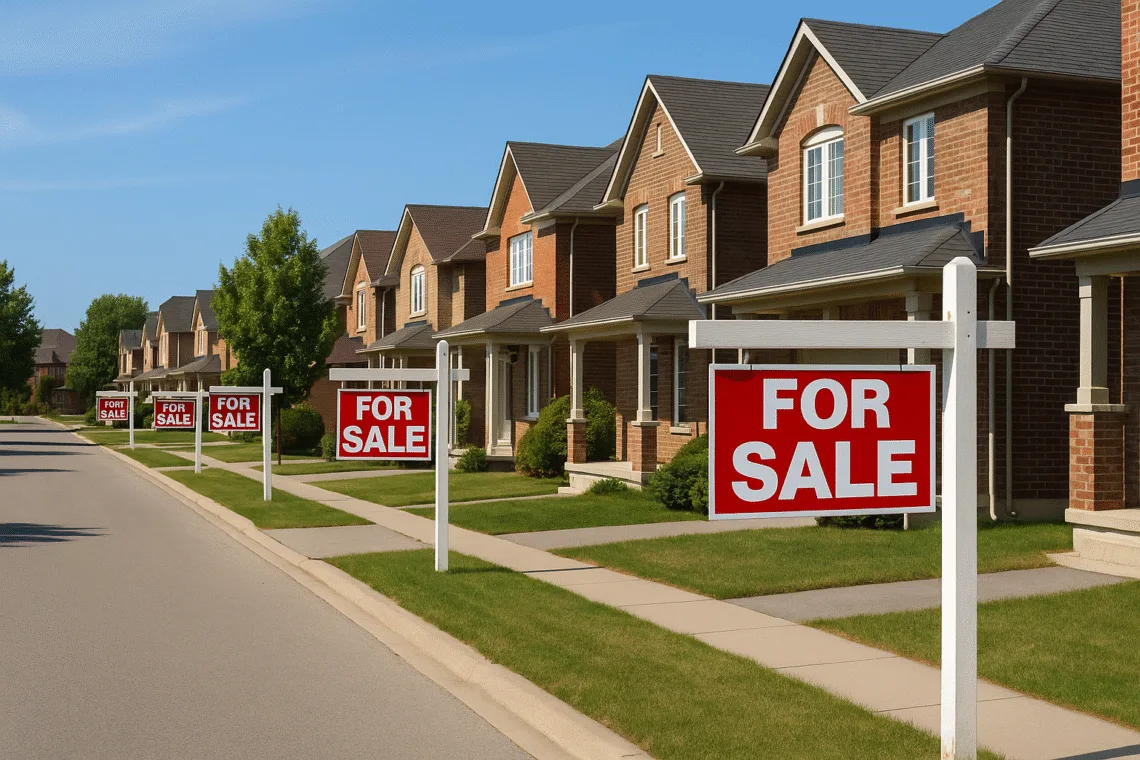If you’ve been keeping an eye on the housing market in Toronto and Vancouver, you’ve probably heard the latest buzz: an annual surtax on properties valued over $1 million. The idea, according to a recent report funded by the Canada Mortgage Housing Corp. (CMHC), is to lower housing prices and use the funds to improve housing affordability. But is this really the solution we need?
What’s This Surtax All About?
The proposal suggests a progressive surtax on properties exceeding the $1 million mark. For instance, if your home is valued at $1.25 million, you’d be looking at a 0.5% surtax on the extra $250,000. That’s $1,250 a year. The surtax rate bumps up to 1% for homes over $2 million.
How Much Money Are We Talking?
The report estimates this surtax could rake in between $4.5 to $5.8 billion annually. The twist? Homeowners wouldn’t pay until they sell their property. So, if you own a home valued at $1.72 million over ten years, you’d owe around $36,000 in surtax when you sell. For a $3.1 million home, it would be about $162,000.
Who’s Affected?
The report claims this surtax would only hit about 9% of Canadian households. But here’s the kicker: it disproportionately affects those in Toronto and Vancouver. In these cities, a significant chunk of detached homes is already valued over $1 million. In fact, 75% of detached homes sold in the Greater Toronto Area (GTA) last year were above this threshold.
Is It Fair?
One big issue is the surtax’s uniform application, regardless of location. This means a home in Vancouver valued at $1.25 million, paying about $3,085 in property taxes, would face the same surtax as a similarly priced home in a GTA suburb, which pays over $10,000 in property taxes. This one-size-fits-all approach doesn’t consider the existing tax burdens across different regions.
A Middle-Class Hit?
Most homes over $1 million in Toronto and Vancouver aren’t mansions—they’re often regular family homes. So, this surtax feels like it’s targeting middle-class families, not just the wealthy. Plus, with affordability already a huge concern, adding another tax layer could make urban living even pricier.
The Generational Divide
Generation Squeeze, the group behind the report, aims to address intergenerational fairness. But their approach might pit millennials against seniors. They suggest lowering income taxes for younger folks while hiking property taxes for older homeowners. This kind of division isn’t the solution we need.
The Bigger Picture
Our housing market issues are complex. Simply taxing high-value homes isn’t a magic fix. We need a more balanced approach that doesn’t unfairly target specific groups or make city living unaffordable for middle-class families.
Final Thoughts
The housing market in cities like Toronto and Vancouver is tough. Adding a surtax on high-value homes might generate revenue, but it could also create new problems. We need thoughtful solutions that address affordability without disproportionately impacting certain homeowners.
What are your thoughts on this proposed surtax? Do you think it’s a step in the right direction, or do we need to rethink our approach to housing affordability? Let us know in the comments below!
Contact Us
Equip yourself with the knowledge to navigate the complexities of the 2024 real estate landscape confidently.



